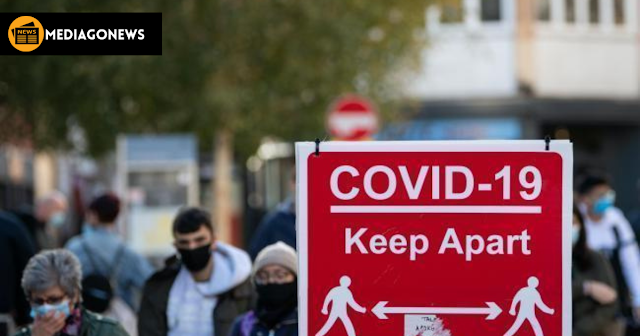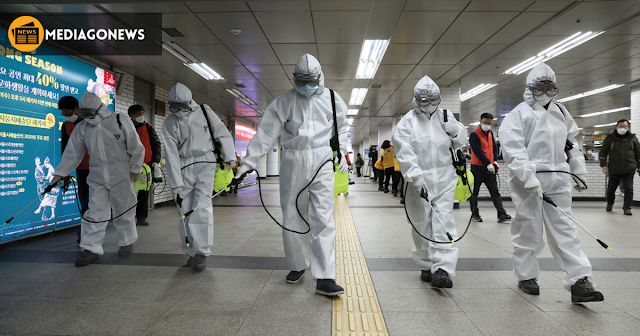France has recently registered an increase in COVID-19 cases. With the number of confirmed cases rising steadily, it is important to take a closer look at the reasons why France is seeing an uptick in the spread of this highly contagious virus. In this blog post, we will explore why France is seeing an increase in COVID-19 cases and what measures are being taken to help contain the spread of the virus.
Why France is Seeing an increase in COVID-19 Cases Free Treatment
Since the pandemic first hit France in early 2020, there has been an alarming increase in COVID-19 cases. The country has now recorded more than 5 million infections, with the daily case count continuing to rise. This begs the question: why is France seeing such a dramatic surge in COVID-19 cases.
Experts suggest that a combination of factors could be responsible for the increase in COVID-19 cases in France. Here are some possible explanations:
1. Easing of Restrictions: Many countries including France have started to relax restrictions as infection rates and hospitalizations fall. However, this could be contributing to the surge in cases by allowing more people to move around and socialize, leading to an increase in transmission.
2. Variants of the Virus: Recent studies suggest that the new variants of the virus are more contagious than earlier strains, and thus, they could be causing the surge in cases.
3. Lack of Vaccination: France lags behind other countries when it comes to vaccinating its citizens. This has led to many people not being fully protected against the virus and thus, contributing to the spread of COVID-19.
4. Low Compliance with Health Protocols: There has been a decrease in compliance with health protocols such as wearing masks and physical distancing. This could be leading to more people being exposed to the virus and becoming infected.
These possible explanations demonstrate the complexity of the issue and highlight why it is so important for countries to take all necessary precautions to prevent the further spread of COVID-19.
what The Government is Doing To Combat The Spread
As the number of COVID-19 cases in France continues to rise the government is taking steps to combat the spread of the virus. France has recently increased testing and contact tracing efforts, as well as put in place travel restrictions including suspending flights to and from certain countries and mandating quarantine for travelers from other countries.
The government has also implemented restrictions on businesses and leisure activities in areas with high levels of infection. Some cities and regions have been placed under lockdown, meaning non essential services are closed and people must stay at home except for essential trips such as grocery shopping or medical visits.
France is also increasing the availability of testing and has established a new public health system which includes laboratory testing contact tracing, and home testing. The government is also providing extra financial support for those impacted by the economic fallout of the pandemic, including providing payments to small business owners and low income households.
Finally France is also rolling out a national campaign to promote hygiene measures, such as frequent hand washing and wearing face masks in public to help slow the spread of the virus. The government has also urged people to avoid large gatherings and to practice social distancing to reduce their risk of infection.
Overall the French government is working hard to contain the spread of COVID-19 and protect the health of its citizens.
How People Are Reacting
As France registers an increase in COVID-19 cases citizens across the country are increasingly concerned about their safety and the overall health of their communities.
Since late April the French government has been imposing stricter guidelines to contain the virus spread, including mandatory masks in enclosed public spaces, social distancing, restrictions on gatherings and limits on movement. Even so, the number of confirmed cases continues to rise, spurring debate and discussion about what additional measures should be taken to protect the public.
On one hand some people argue that tougher restrictions should be imposed and more vigilant monitoring of suspected cases should take place. Others contend that the existing measures are sufficient and that further action would hurt the economy and deprive citizens of personal freedom.
The debate over what should be done is likely to continue as France struggles to balance public safety with economic stability and personal freedoms. While the French government works to find solutions to the pandemic, citizens must remain vigilant in taking the necessary precautions to protect themselves and their families from the virus.
What This Means For The Future
The recent surge in COVID-19 cases in France has caused alarm among experts and citizens alike. While the country's strict lockdowns last year helped to keep the number of infections low, the current outbreak is cause for concern.
This rise in cases has been attributed to the emergence of more contagious variants of the virus and increased travel due to the easing of restrictions. The government has responded with a third national lockdown which is expected to last until at least mid April.
The consequences of this latest outbreak could have long term implications for France and the wider region. Health experts have warned that it could further strain an already fragile health system and that it may set back the process of getting back to normal life. There are also fears that further outbreaks of the virus could spread across Europe with countries that have seen lower levels of infection so far potentially at risk.
It is yet to be seen how effective the latest lockdown measures will be in curbing the spread of the virus and what effect it will have on the French economy. What is certain, however, is that vigilance and caution are necessary in order to keep the virus at bay. Strict adherence to social distancing guidelines and wearing masks remain essential as well as getting vaccinated when eligible. Only by working together can we hope to prevent a further surge in infections and get back to a safe and healthy life.







No comments:
Post a Comment